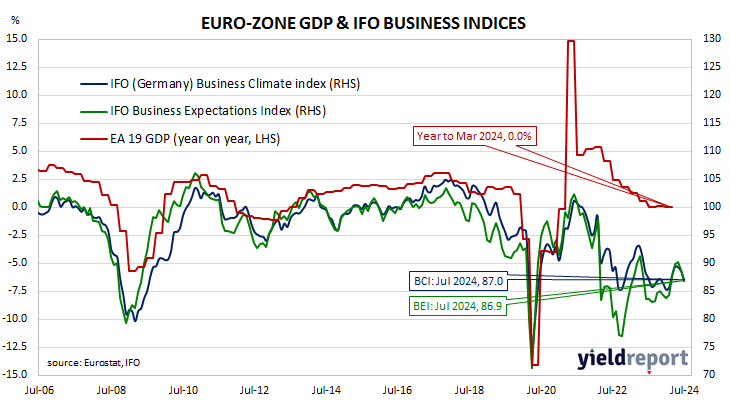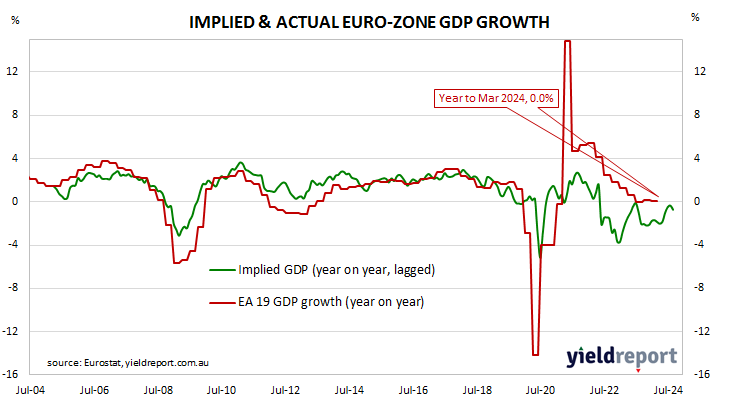Summary: ifo business climate index declines in July, slightly less than expected; “German economy is stuck in crisis”; current conditions, expectations indices both down; German, French yields fall; expectations index implies euro-zone GDP contraction of 0.7% in year to October.
Following recessions in euro-zone economies in 2009/2010, the ifo Institute’s Business Climate Index largely ignored the European debt-crisis of 2010-2012, mostly posting average-to-elevated readings through to early-2020. However, the index was quick to react in the March 2020 survey, falling precipitously before recovering quickly in subsequent months. Readings through much of 2021 generally fluctuated around the long-term average before dropping away in 2022 and stagnating through 2023.
According to the latest report released by ifo, German business sentiment weakened further from its already-depressed level. July’s Business Climate Index posted a reading of 87.0, below the generally expected figure of 89.0 as well as June’s final reading of 88.6. The average reading since January 2005 is just over 96.
“The companies were less satisfied with the current business situation,” said Clemens Fuest, President of the ifo Institute. “Scepticism regarding the coming months has increased considerably. The German economy is stuck in crisis.”
German firms’ views of current conditions and the outlook both deteriorated. The current situation index slipped from 88.3 to 87.1 while the expectations index declined from 88.8 after revisions to 86.9.
German and French long-term bond yields both declined moderately on the day. By the close of business, German and French 10-year yield had both lost 3bps to 2.43% and 3.13% respectively.
The ifo Institute’s business climate index is a composite index which combines German companies’ views of current conditions with their outlook for the next six months. It has similarities to consumer sentiment indices in the US such as the ones produced by The Conference Board and the University of Michigan.
It also displays a solid correlation with euro-zone GDP growth rates. However, the expectations index is a better predictor as it has a higher correlation when lagged by one quarter. July’s expectations index implies a 0.7% year-on-year GDP contraction to the end of October.



